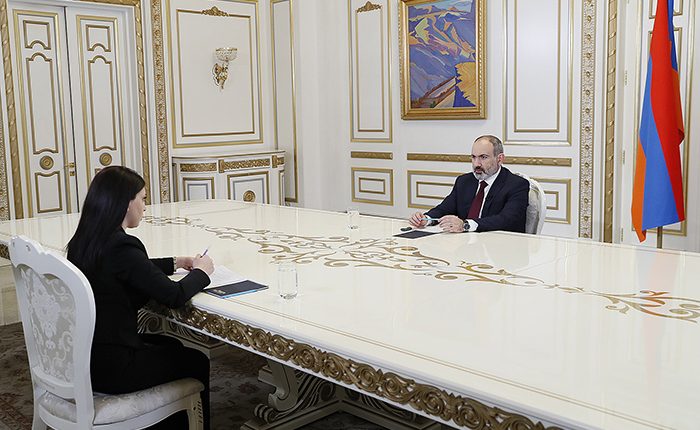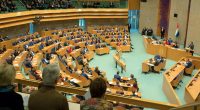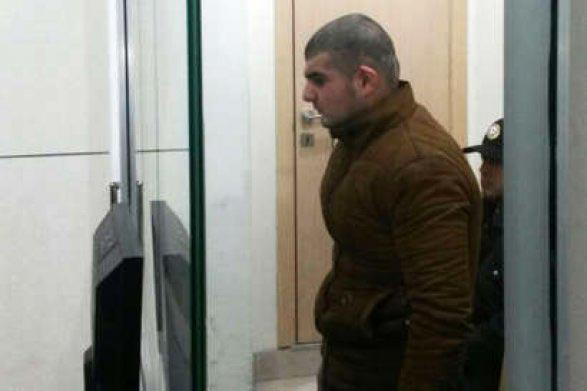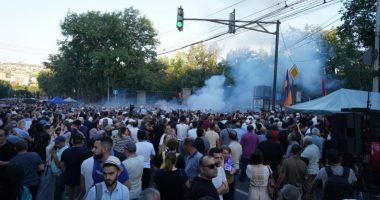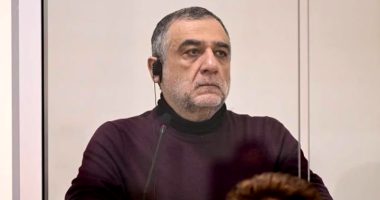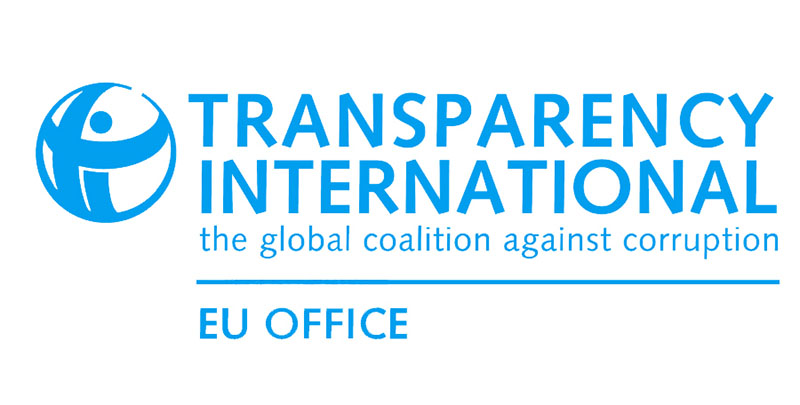YEREVAN — In a livestream Facebook press conference on Tuesday, Armenian Prime Minister Nikol Pashinyan explained why the meeting with Russian and Azerbaijani Presidents Vladimir Putin and Ilham Aliyev, scheduled for November 9, did not take place.
Pashinyan said that he had been willing to meet with Aliyev and Putin on November 9, but only if major issues, including the fate of Armenian prisoners of war held in Azerbaijan, were to be discussed.
When it became clear that such topics were not on the table, the meeting was postponed, Pashinyan explained.
“I sincerely said that November 9 is a difficult and bitter day for us, but if it turns out that, for example, we can solve the issue of prisoners, I am ready to participate in this online forum,” Pashinyan said at the press conference that lasted over two hours.
Pashinyan said that with its aggressive policies Azerbaijan not only invades Armenian sovereign territory, but also assails Armenia’s “statehood, sovereignty, independence and democracy.” He pledged that Yerevan will continue to raise this issue in the international arena.
“Azerbaijan clearly demonstrates that it has territorial claims against Armenia. What does the ‘Zangezur corridor’ or ‘Western Zangezur’ expressions mean?” he said. “We have stated before, and now we also declare that we have not discussed the issue in corridor logic, we are not discussing it and will not be discussing it, which does not mean that we are abandoning the agenda of opening regional links.”
Pashinyan said that after having been in a blockade for three decades Armenia, in fact, may need regional unblocking more than Azerbaijan. He claimed that Azerbaijan’s insistence on corridor logic may be aimed at thwarting Armenia’s efforts to achieve this unblocking.
A pledge to unblock “all economic and transport connections in the region” was included in last year’s ceasefire agreement. Azerbaijan, in coordination with its close ally Turkey, has imposed a devastating economic blockade on Armenia for over 25 years.
If established, the connection will remain under Armenian sovereignty, Pashinyan said, adding that the ceasefire agreement says that all international roads will remain under the control of the countries in whose territories they lie.
At his press conference, Pashinyan said that he expects to sign a document in the near future with Azerbaijan establishing a joint commission to demarcate and delimit the two countries’ shared border.
“A potential document that will be signed will be traced to the fact that Armenia and Azerbaijan are forming a commission that begins to deal with the delimitation and demarcation of borders,” he said.
Answering a question about relations with Turkey, Pashinyan expressed readiness to establish relations with Turkey. “We want to normalize relations with Turkey. But we also want to ask a question to Azerbaijan and Turkey. Do they want to destroy Armenia? Do they want to continue and complete the genocide of the Armenian people? If not, it’s a different question. If yes, which should be our choice?” the Prime Minister said.
“I want Turkey and Azerbaijan to answer very clearly – not in words, but in deeds – whether they want to annihilate the Armenian people, whether they want to destroy the Armenian statehood, whether they want to continue the policy of genocide. If yes, what choice do we have, except for resistance? If not, then they are right – there is a historic opportunity to stablish peace and stability in this region,” the Prime Minister said.

